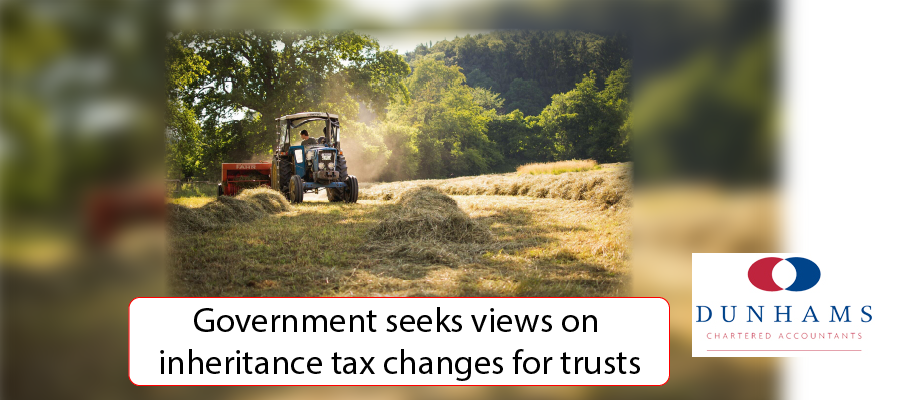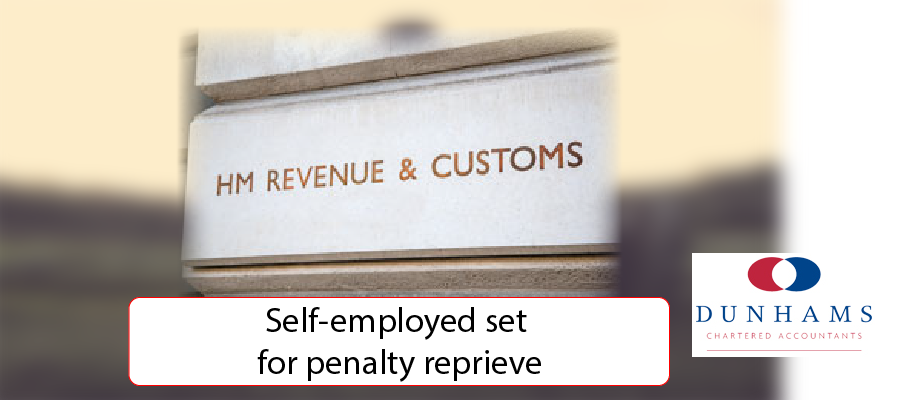MONTHLY FOCUS: PROFIT EXTRACTION FOR 2024/25

MONTHLY FOCUS: PROFIT EXTRACTION FOR 2024/25 – Dunhams News Blogs The 2024/25 tax year has been a reprieve from the fiddly tinkering which has plagued profit extraction in recent years. There have been no in-year changes to NI rates or corporation tax rates etc. to deal with. As a result, you can focus on your remuneration strategy with more clarity. This is a welcome relief – especially as the 2024 Autumn Budget means 2025/26 will be a different story! This Monthly Focus will help you to form a profit extraction strategy that will keep more of your profit in your bank account and not HMRC’s. Page Content:- DIRECTORS’ ALTERNATIVE BASIS SALARY AND DIVIDENDS BEYOND SALARY AND DIVIDENDS NI AND OTHER RATES AND THRESHOLDS In this section, we summarise the important rates and thresholdS. Class 1 Thankfully, there was no in-year change in NI rates for employees. From April 2024, the main rate of primary Class 1 NI was reduced to 8%. It’s possible for a director to elect for an alternative method where the NI is worked out based only on the pay received in a particular period, i.e. similar to the method for regular employees. At the end of the year an adjustment is made to reconcile any over or underpayments (see Chapter 2). The effect of this is to align the contributions with those that would be payable if the standard method of NI was used, and potentially correct over or underpayments. For employers, the rate for secondary Class 1 remains at 13.8%, but this will increase to 15% from 6 April 2025. Further, the secondary earning threshold, i.e. the amount an employer can pay a director per year is reduced to £5,000 from the same date. Class 2 and 4 For self-employed individuals, there are two classes of NI that apply. Class 2 is a fixed weekly amount of £3.45 for 2024/25. However, it no longer needs to be paid on a compulsory basis. Instead, if your profits exceed the lower profits limit, £6,725 for 2024/25 and 2025/26, it will be treated as paid for the purpose of state benefit entitlement. If profits are below this, you will need to pay on a voluntary basis in order to accumulate entitlement for the year. Class 4 is a profits-based charge. It will only apply if your self-employed profits exceed £12,570 in 2024/25 or 2025/26. Class 4 NI does not confer any state benefit entitlements and is essentially a tax in all but name. The employment allowance (EA) The EA for 2022/23 to 2024/25 is £5,000. For 2025/26 and later years it is £10,500. The EA reduces employers’ NI by the lesser of the EA and the amount of employers’ NI payable. However, the following employers are excluded: The 2024 Autumn Budget announced that the later restriction will be scrapped from 6 April 2025. This is worth keeping in mind, especially as the EA is increasing to £10,500 at the same time. For more Help with Your Accounts see our Services Pages. Dividends The dividend rates from 2023/24 have been retained. The dividend allowance (really a 0% rate) has been reduced to just £500 from April 2024. The rates are as follows for 2024/25: Dividends within the dividend allowance use up the tax band they fall into. Other recent changes affecting profit extraction Since April 2023, the main rate of corporation tax (CT) increased from 19% to 25%, with a return to marginal relief. Affected companies will have less after-tax profit available for distribution. DIRECTORS’ ALTERNATIVE BASIS In this section we look at the way that directors are subject to NI, including an alternative basis that can be advantageous in certain situations. Alternative basis v standard basis Unlike general employees, directors are able to exercise some control as to how much they get paid and when. This could allow them and their companies to unfairly reduce NI contributions. To prevent this, special rules apply so that their Class 1 NI liability is calculated according to their earnings for the tax year as a whole (the annual earnings period) instead of one linked to their pay interval. The rules mean that the director pays no NI until the annual earnings threshold (£12,570) is reached. They then pay NI on all earnings at the main percentage rate (8% for 2024/25) until the annual upper earnings threshold (£50,270) is reached, subsequently paying NI at 2% on all earnings above that. To work out the contributions due in respect of each payment, it is simply a case of working out the NI liability using the annual limits on all earnings in the year to date and deducting any NI paid to date. The effect of this is that the director enjoys a low NI burden at the start of the year until their earnings to date reach the earnings threshold. The bulk of the NI liability is then paid until earnings reach the upper earnings limit. Once that is reached, things get slightly easier in that contributions are only payable at a rate of 2% on all subsequent earnings. However, HMRC allows directors to adopt an alternative method, by which NI contributions are calculated for most of the year as for other employees, i.e. using normal monthly or weekly earnings periods and on a non-cumulative basis. The position is reviewed at the end of the year and once the final payment is made the annual liability is calculated. The contributions due on the final payment are found by calculating the annual liability less the total of any contributions paid in the year. The director still has an annual earnings period – they are simply making payments on account of that liability throughout the year. Benefits of alternative basis The alternative basis is useful for directors who draw regular payments as salary or bonuses, as it helps to spread the NI burden throughout the year. In most cases, it won’t be helpful to directors who vote their salary at the end of the year and don’t
Government seeks views on inheritance tax changes for trusts

Government seeks views on inheritance tax changes for trusts The government has opened a consultation on aspects of the application of the £1m allowance for property settled into trust qualifying for 100% agricultural property relief or business property relief. What is this looking at and how do you take part? For more help see our Personal Accounting Services. As announced at the 2024 Autumn Budget, a new £1m allowance will apply to the combined value of property that qualifies for 100% business property relief or agricultural property relief from inheritance tax. The value of the estate exceeding the allowance will be subject to relief at a lower rate of 50%. A consultation has now been launched which outlines how the £1m allowance will operate in respect of both existing trusts and trusts yet to be formed. As with any major change to the tax rules involving trusts, the transition is complicated, and the consultation asks whether the rules on application are sufficiently clear, as well as requesting views on other matters. Have your say here by 23 April 2025. The consultation also revealed key information for individuals – it is confirmed that the £1m allowance refreshes every seven years (as the nil rate band does), and transfers made prior to 30 October 2024 (Budget Day) will not use up any of the £1m allowance.
Latest advisory fuel rates for company cars

Latest advisory fuel rates for company cars The amount that employers can reimburse staff for business travel in company cars changes from 1 March 2025. What are the new rates? Advisory fuel rates for company cars are updated by HMRC on a quarterly basis due to fluctuations in fuel prices. The rates determine the amount that can be paid to an employee using a company car for business mileage, or where an employee has to reimburse their employer for private journeys. Providing HMRC’s rates are used, there are no income tax consequences for the employee. For more Help with Your accounting needs see our Accounting Services Page. HMRC has now published the rates applicable from 1 March 2025. The rates per mile will be: Engine size Petrol LPG 1,400cc or less 12p 11p 1,401cc to 2,000cc 15p 13p Over 2,000cc 23p 21p Engine size Diesel 1,600cc or less 12p 1,601cc to 2,000cc 13p Over 2,000cc 17p The rate for fully electric vehicles will stay consistent at 7p per mile. Hybrid cars are treated as either petrol or diesel cars for the purposes of advisory fuel rates. Take a look at Our Financial Services These rates apply from 1 March 2025, and although it is possible to use the previous rates for another month, some of the new rates are slightly higher so should be used from 1 March.
Late payment interest rates changed again

Late payment interest rates changed again Late payment interest rates on underpaid taxes will soon decrease again due to the recent reduction in the Bank of England’s base rate. What are the new charges? On 6 February 2025 an announcement confirmed a reduction in the Bank of England base rate to 4.5% from 4.75%. As HMRC’s late payment and repayment interest rates are linked to the base rate, they will also come down. Get more help from our Business Tax Services page. From 17 February 2025 the following rates will apply: From 25 February 2025, the rates for other taxes will be: Penalty interest can be avoided by paying your tax bill on time. You can use HMRC’s calculator to calculate the late payment interest and any penalties due for previous tax years.
Navigating the risks of Valentine’s Day

Navigating the risks of Valentine’s Day It’s Valentine’s Day later this week and love is in air (apparently). However, an unwanted Valentine’s gesture in the office could lead to awkwardness, discomfort or even legal issues. As an employer, how can you ensure Valentine’s Day passes smoothly? Get the help you need and get to know us better. Cards and gifts – whilst an employee sending a romantic card or gift to a colleague on Valentine’s Day may seem harmless, if it’s unsolicited and unwanted it may make the recipient feel uncomfortable, awkward or pressured, particularly if there is a power imbalance, e.g. it’s come from a manager or someone more senior. It might even amount to sexual harassment, depending on the particular circumstances of the case, i.e. if it constitutes unwanted conduct of a sexual nature which has the purpose or effect of violating the employee’s dignity or creating an intimidating, hostile, degrading, humiliating or offensive environment for them. Given your new positive duty to take reasonable steps to prevent sexual harassment, you may therefore wish to remind staff that workplace professionalism requirements continue to apply, so employees must respect boundaries and should not send unsolicited cards or gifts on Valentine’s Day to colleagues, regardless of whether those are intended romantically or as a joke, or whether they are sent anonymously or signed. Date invitations – Valentine’s Day can bring an increase in colleagues inviting each other out for a drink or dinner but, if the invitation is unwelcome, the same considerations apply as above. So, you might also wish to remind staff that, if there is any doubt about how an invitation to socialise outside the office will be received, they should not ask. Plus, “no means no” and, if a colleague declines an invitation, the issue should not be raised again. If you have any employees who are already in consensual personal romantic relationships with colleagues, you could remind staff that public displays of affection, grand gestures or intimate behaviour in the office between such individuals on Valentine’s Day can be disruptive and make others feel uncomfortable and so are prohibited. You can also refer staff to the provisions on your personal relationships at work policy (if you have one).
Self-employed set for penalty reprieve

Self-employed set for penalty reprieve Over 1m people missed the 31 January filing deadline last week and will shortly be receiving automatic £100 penalties as a result. However, HMRC has announced that the penalty won’t be enforced for the self-employed – but only in limited circumstances. Are you eligible? Get more help with our Accounting Services Penalties for late filing are applied in stages, with the first being a £100 penalty where the tax return is not filed by midnight on 31 January following the end of the relevant tax year, i.e. 31 January 2025 for the 2023/24 year. There are sometimes blanket extensions to the deadline, e.g. during the pandemic, but in other cases a penalty might be waived if the taxpayer has a “reasonable” excuse. There is good news for sole traders and partnerships for 2023/24 due to the disruption caused by basis period reform. In its latest Stakeholder Digest, HMRC has announced that where such taxpayers requested an overlap relief figure from HMRC before 31 January but did not receive a response by that date, an extension to 28 February will apply. It is not clear from the announcement whether this extension will apply automatically, or whether those affected will need to appeal using a reasonable excuse argument. The Digest also advises filing the return using estimated figures in the meantime and amending later on. This will allow an estimate of the tax to be paid. Don’t forget, interest will always be added to late-paid tax, even where a late filing penalty is waived.
Chancellor set to tone down non-dom reform?

Chancellor set to tone down non-dom reform? Domicile will no longer be a relevant factor in an individual’s tax status from April 2025. However, reports are suggesting that the Chancellor is going to soften the blow for those affected. What’s going on? Domicile is a general, not a tax, law principle. Nonetheless it has long been an important factor in determining the extent to which worldwide income, gains and assets are subject to various taxes. This will change from 2025/26 and later years with a move to a residence-based system, which can be determined year-by-year. If You need help with your Personal Tax see our Accounting Services pages. This move was first announced by the last government, but the incumbent government confirmed it would be continuing with the reform, tightening up what it said were loopholes in the pre-existing plans. The announcements were met with dismay by many in the financial sector, with warnings that the changes would disincentivise wealthy people from moving to, and investing in, the UK and perhaps lead to “capital flight”. Yesterday, it emerged that the Chancellor had apparently conceded that the reforms were having more of an impact than expected and was planning to table an amendment to the draft legislation in response. We don’t know the full details yet, but the amendment will be to the temporary repatriation facility. As currently drafted, this will allow individuals who were previously taxed on the remittance basis to designate amounts derived from pre-6 April 2025 foreign income and gains and to pay a reduced tax rate. This facility will be available for three tax years; 2025/26, 2026/27 and 2027/28. A tax rate of 12% will apply for 2025/26 and 2026/27, rising to 15% for 2027/28. The most likely scenario is that this period will be extended, and/or the applicable rates reduced. The Chancellor’s announcement comes on the heels of a report by global analytics firm New World Wealth and investment migration advisers Henley & Partners which found that 10,000 millionaires had left the country in 2024, an increase of 157% compared with the previous year.
Russian hedge fund manager loses £484k SDLT case.

Russian hedge fund manager loses £484k SDLT case. The First Tier Tribunal (FTT) has found that an ex-bacon factory was suitable for use as a dwelling and therefore did not qualify for SDLT relief. What’s the full story? InTretyakov v Revenue and Customs, Mr Tretyakov (T) purchased a luxurious £5.75m property in London and paid a reduced rate of SDLT on the basis that part of the property was “non-residential2. For SDLT purposes, a property will be considered non-residential if it is not suitable for use as a dwelling – measured at the point of acquisition. For more Help with your Business Needs see our Accounting Services The property was originally a bacon factory, which was converted into a three-storey residence and had several owners before being purchased by T who, on the advice of the estate agent, claimed that the ground floor was non-residential. The ground floor included a garage with two sunken parking spaces, storage space, a 40ft-fully-functioning bar, games room, wine cellar, gym and sauna. The vendors gave evidence at the tribunal, stating that they had been unable to obtain planning permission to turn the ground floor into a residential space, and that it is subject to non-domestic business rates. It was also noted that there was very little natural light and concrete flooring. The vendors confirmed that there had been some commercial use of part of the garage but that the majority of the ground floor was used for private entertaining. The judge found that while the planning designation of the floor was a factor, it was not determinative. Any commercial use at the time of sale was irrelevant, as were any planning restrictions because the tax treatment is based on whether the ground floor was suitable for use as a dwelling. The wine cellar, games room, bar and other entertainment facilities had been enjoyed by the vendors personally, not for any commercial purpose and so the FTT found that the entire property was suitable for use as a dwelling. The appeal was denied and T was hit with a further SDLT bill of £484,250.
Selling online – what’s HMRC’s latest guidance?

Selling online – what’s HMRC’s latest guidance? Recently published guidance which suggests that as an online seller you may have to report to HMRC even if you’re selling personal possessions you no longer want. Is this actually true? Déjà vu? HMRC seems slow to learn that ambiguous information has a habit of breeding unwelcome headlines and panic on social media. So after releasing “Check if you need to tell HMRC about your income from online platforms” , it quickly followed up with a press release confirming that there were no tax changes for online sellers. We’ve been here before, in early 2024, when there was a supposedly new tax for side hustles. To get more Help with your Personal Tax, take a look at our Tax Pages Vague guidance The trouble is HMRC uses phrases such as “you may” and “unlikely” which, when you’re deciding if you need to declare income is hardly clear or transparent. On the part dealing with personal possessions there is a focus on chattels worth less than £6,000 which are indeed exempt from capital gains tax (CGT). However, there is little mention of the important exemption for wasting assets. Wasting assets Wasting assets are all items with a predicted lifespan of less than 50 years from the date you acquired them. This includes all machinery unless you’ve claimed business tax deductions for it. The reason these assets are exempt from CGT is because their value generally erodes over time so HMRC doesn’t expect a gain to arise. Example. If Neo buys a case of good Bordeaux, it’s very unlikely to last 50 years even if kept well. So any profit he makes is exempt from CGT, even if it does in fact last more than 50 years. As Morpheus prefers to invest in vintage whisky with an expected life exceeding 50 years, any profit (gain) will be liable to CGT. Machinery includes watches, clocks, shotguns and most types of vehicle, including yachts but excluding racing cars, and musical instruments. If you frequently sell items – second-hand (other than your personal possessions) or new – you might be trading. In this situation any profit/gain you make can be liable to income tax, therefore the CGT wasting asset exemption can’t apply. Why it matters By 31 January 2025, online platforms such as eBay and Etsy must provide a report to HMRC and the individual where there were over 30 sales transactions in 2024 or their cumulative value exceeded £1,700. While this is aimed at those evading tax, it will also affect compliant taxpayers selling exempt personal possessions online. Requirement to tell HMRC For exempt gains, there is no need to tell HMRC, register for self-assessment or submit a tax return. The only exception is if the proceeds exceed £50,000 and you are already completing a self-assessment tax return for another reason. If you make a loss from the sale of a non-exempt asset, you must notify HMRC of the details if you want to be able to use it to reduce CGT on gains made in the same or later years. If in doubt, use the online checking tool to see if you may have anything to report.
MTD ITSA – another step closer

MTD ITSA – another step closer HMRC has picked up the pace on using Making Tax Digital for Income Tax Self-Assessment (MTD ITSA). Its new guidance explains how to join the scheme part way through a tax year. Is now the time for you to get on board? Timetable In April 2026, just 15 months away, sole traders and landlords whose turnover exceeds £50,000 per year (based on figures for 2024/25) will need to use Making Tax Digital for Income Tax Self-Assessment (MTD ITSA). In April 2027 MTD ITSA will be mandatory for sole traders and landlords with turnover exceeding £30,000 for 2025/26. For those with lower turnovers MTD ITSA won’t be mandatory but can be used voluntarily. Get the Help you need, see our Personal Tax page. HMRC encouragement After a few false starts HMRC launched the MTD ITSA pilot in April 2024. However, reports of the many problems with its predecessor have deterred many from signing up for this version. In a move to bring more sole traders and landlords on board, at the end of 2024 HMRC published new guidance on how to bring records up to date so that you can join MTD ITSA part way through the current or 2025/26 tax year. It has also published a “toolkit” to help you and your accountant get to grips with the fundamentals. Most bookkeeping software is now or soon will be compatible with MTD ITSA, and HMRC’s latest guidance contains links to these. If you use spreadsheets instead of bookkeeping software it’s still possible for you to use the MTD ITSA pilot through so-called bridging software. Details of these options are also in HMRC’s guidance. No penalties During the voluntary period HMRC will not penalise you with fines for late reporting or mistakes you make if they relate to using MTD ITSA. Naturally, the usual penalties continue to apply for failing to declare income etc. Joining the pilot will put you ahead of the game and allow you to iron out bookkeeping and reporting issues before it becomes mandatory
